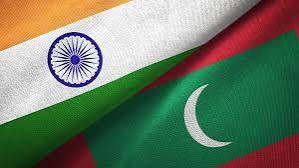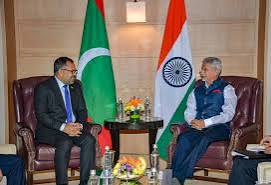Maldives Regains Full Sovereignty After Decades of Indian Military Presence
After over five decades of allowing Indian military personnel on its soil, the Maldives has confirmed the full withdrawal of Indian troops from the island nation. Heena Waleed, President’s Office Chief Spokesperson, told the Sun.mv news portal that “the last batch of Indian soldiers stationed in the Maldives have been repatriated,” though she did not provide specifics on the number of troops involved.
Historical Indian Military Presence
The Indian military presence in the Maldives dates back to 1988 when the mercenary outfit Persio Liberation Organisation attempted a coup against then-President Maumoon Abdul Gayoom. India launched Operation Cactus and dispatched troops to the Maldives to thwart the attempted takeover and restore Gayoom’s government. While the intervention force was meant to be temporary, India maintained a military presence in the Maldives for over three decades after the aborted 1988 coup. Around 1,600 Indian troops were stationed on the island of Gan in the southern Maldives to provide security cooperation and assist with detecting and preventing maritime threats.

Shift in Strategic Dynamics
The decision to finally repatriate all Indian soldiers represents a significant shift in the strategic dynamics between India and the Maldives under the presidency of Ibrahim Mohamed Solih. Solih took office in 2018 after defeating Abdulla Yameen, who had cultivated closer ties with China during his tenure,Solih aimed to reset relations with traditional partner India after the pro-Beijing tilt under Yameen.
However, allowing the ongoing Indian troop presence was seen by some as an infringement on Maldivian sovereignty and a relic from a past era of regional power dynamics.While appreciative of India’s security cooperation over the years, the Solih administration appears intent on removing the visible symbols of Indian military presence and reasserting the Maldives’ territorial integrity.
The complete withdrawal could pave the way for recalibrating security cooperation between the two nations on a more equal footing.Strategic Vacuum and Potential Consequences The repatriation of Indian troops creates a strategic vacuum and raises questions about future security arrangements for the Maldives, an archipelagic nation with over 1,000 islands scattered across the Indian Ocean.
Some analysts suggest the absence of boots on the ground could open space for other regional powers like China to court greater security partnerships with the Maldives. Beijing has already invested heavily in infrastructure projects as part of its Belt and Road Initiative across South Asia and the Indian Ocean region.However, the withdrawal also provides an opportunity for the Maldives to diversify its security relationships and avoid excessive dependence on any one partner.
Neighbouring powers Pakistan and Saudi Arabia have already offered support, and Western nations may also seek to engage the island chain’s new strategic significance.Ultimately, how the security dynamics in the Maldives evolve remains to be seen. But the repatriation of Indian troops marks a definitive break from the past and signals the small island nation’s desire to forge an independent foreign policy path aligned with protecting its sovereignty over the strategic Beijing-Delhi tug-of-war.



